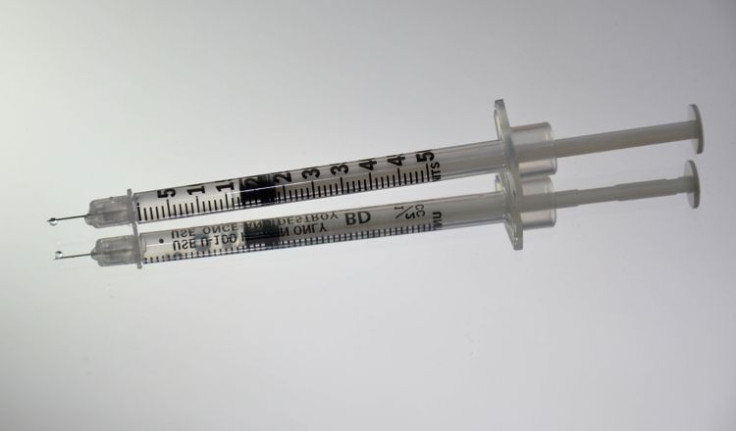High-Dose Flu Vaccine, Plus Booster Shot May Better Protect Patients With Certain Cancers

A typical flu shot with a little more oomph may better protect cancer patients especially vulnerable to infection, new preliminary research presented Sunday at the 57th annual meeting of the American Society of Hematology has found.
Since people with certain cancers of the immune system are known to be especially susceptible to flu infection, and oftentimes receive little protection from the standard flu shot, researchers from Yale University decided to test a novel vaccine strategy among a group of 51 such patients (median age 75). In addition to providing their volunteers with a high-dose version of the vaccine, the researchers gave them an additional booster shot 30 days apart. Not only did two volunteers (4 percent) subsequently come down with the flu, but also there were no serious side effects reported afterwards.
"These results suggest that this novel vaccination strategy is safe and may have a clinical benefit [for these patients]," the authors concluded.
A Smart Boost
The type of cancer the patients in the study were suffering from are more specifically known as plasma-cell disorders. Though PCDs come in varying flavors, it generally involves the uncontrollable replication of cells responsible for creating antibodies. While antibodies are an important part of fighting infection, the ones produced by renegade clones are as defective as the source, oftentimes haphazardly attacking the body itself. Worse still, because a cancerous plasma cell only produces one particular type of antibody at an alarming rate, it effectively shuts or slows down the production of other antibodies, greatly weakening the immune system.
People living with PCDs are believed to face ten times higher risk of flu infection than the general population, with 20 percent expected to have the flu within any given year. Meanwhile, according to the authors, previous studies have shown that the level of protection conferred by a standard flu shot ranges from 5 to 19 percent — as measured by their hemaglutination antibody inhibition (HAI) titers.
Building on earlier promising research that provided patients with booster doses of the standard flu shot, the current authors decided to up the stakes by switching to a high-dose version approved by the Food and Drug Administration in 2009 known as Fluzone®. Of the 51 PCD patients (41 of which were actively being treated for their PCD), only 7 percent had HAI levels suggestible of protection against the 3 seasonal strains of influenza prior to the first flu shot. Afterwards, however, that jumped up to 33 percent among a smaller sample of 30 patients.
Though it will take time to determine how much protection the second shot provides, the fact that only two volunteers developed flu lends credibility to the authors' theory that the booster dose significantly buffers patients against infection. In addition to eventually presenting these secondary results, the authors are planning to continue their research via a randomized trial set during this ongoing flu season in order to compare "this novel vaccination strategy to standard of care vaccination in patients with plasma cell disorders."
Source: Branagan A et al. Fluzone® High-Dose Influenza Vaccine with a Booster Is Associated with Low Rates of Influenza Infection in Patients with Plasma Cell Disorders. 57th annual meeting of the American Society of Hematology. 2015.



























